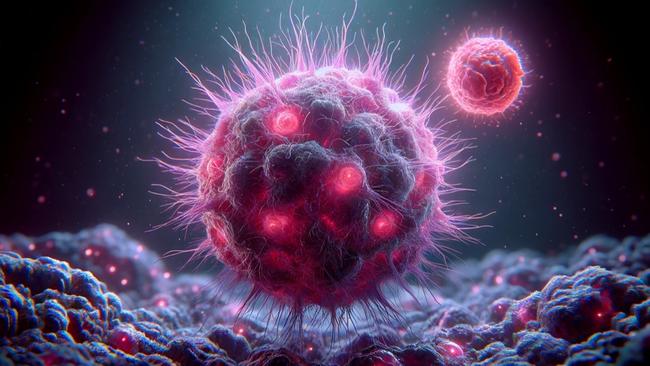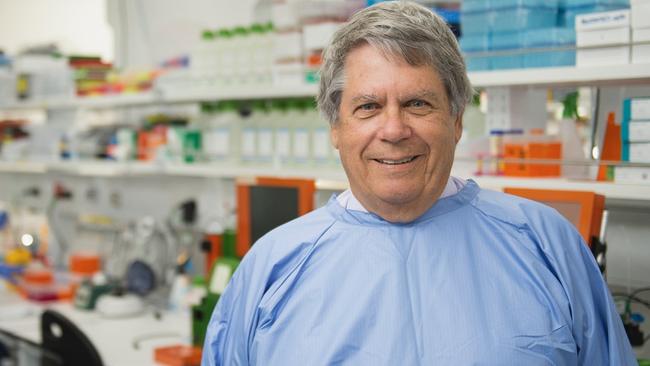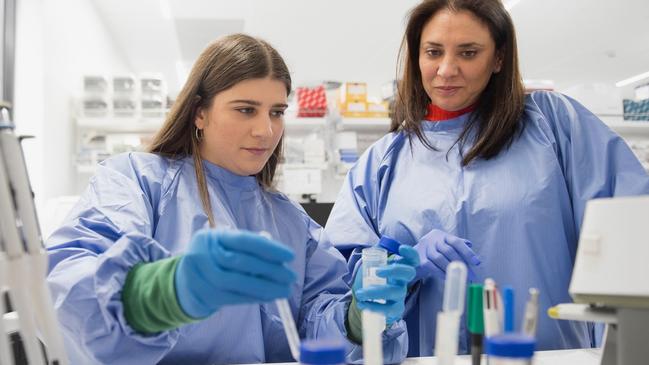Ovarian cancer: Biotech company Cartherics to start human trials of new drug
The first human trials of a groundbreaking treatment for ovarian cancer - which was developed in Victoria - are set to begin early next year using a unique cell therapy drug.
Victoria
Don't miss out on the headlines from Victoria. Followed categories will be added to My News.
The first clinical trials of a groundbreaking treatment for ovarian cancer developed in Victoria are set to begin early next year.
Ovarian cancer is Australia’s deadliest female cancer, and a frustratingly stubborn one to treat. Last year it claimed the lives of more than 1000 Australian women.
Private biotech company Cartherics announced last week it had a positive meeting with the United States Food and Drug Administration (FDA) as part of its final preparations to file a formal application to start human studies of its unique cell therapy drug.
Called CTH-401, it is a natural killer (NK) cell product that seeks out and destroy the cells that cause ovarian cancer.

The NK cells used in this treatment come from stems cells taken from donated babies’ cord blood. Stem cells are nature’s building blocks and can transform into any other type of cell in the body.
The Melbourne-based company says this is the only treatment in the world to target and kill the ovarian cancer-associated cell molecule called TAG-72.
“The importance of the meeting with the FDA was that there were no red flags,” Professor Alan Trounson said.
The Cartherics CEO and renowned IVF and stem cell pioneer, Prof Trounson said the company now knows what it needs to do to achieve a successful filing to begin the clinical trials.
“If this therapy works, we can manufacture the product very easily,” Prof Trounson said. “Because it is cloned from one single cell checked for genetic normality, so there are very few risk elements.”

The scientist said the therapy should work in 95 per cent of ovarian cancers because they all have the TAG-72 cancer cell that the product is designed to target and kill.
“65 per cent of women don’t survive (ovarian cancer). We need something because there is not a lot of successful treatment available,” he said.
The company will file its application in February or March, advise the TGA and then seek the approval of hospital ethics committees to do the trials in Australia.
“Clinical trials with Australian patients should start by the first quarter next year,” Prof Trounson said.
“We know we have patients waiting in Melbourne and Sydney who want to be on the trial. We need to find out how well it works. Let’s hope it works for them.”
He said up to 30 patients would be recruited for the first study.

“I think it is a great treatment,” Prof Trounson said.
“It may not be perfect yet because we still may need to modify further, but this looks really good and safe in all our tests and those two things are important.
“Natural killer cells have never shown up any adverse effects. We are making (the product) out of a single cell and we know exactly what we have genetically done and we multiply them into natural killer cells in very large numbers. That’s the incredible value of stem cells.
“The NK cells are really fierce in the lab and if we can get them into the site where the cancer is, then I think they will effectively destroy the cancer.”
At a glance:
• Ovarian cancer is a malignant tumour in one or both ovaries
• Last year 1200 women in Australia were diagnosed
• Australia’s most deadly female cancer, it can be difficult to diagnose because symptoms can be vague





